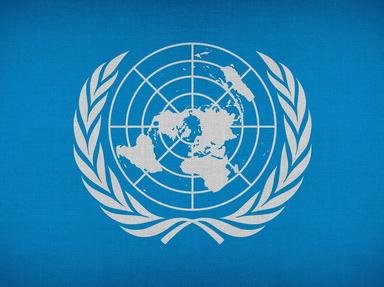
UN Specialized Agencies: What Do They Do? Quiz
The United Nations system includes 15 specialized international agencies that work with the UN to tackle various issues. Can you match each of the ten listed here with its field of expertise? The acronyms should help you to figure out which is which.
A matching quiz
by LadyNym.
Estimated time: 3 mins.